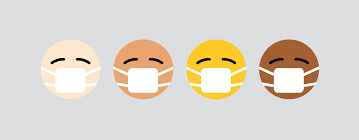
GLOBALLY DOCTORS ARE BEING STRUCK OFF MEDICAL COUNCILS OR WALKING AWAY FROM THEIR MEDICAL PROFESSION.
IN December 2020, US family doctor Steven LaTulippe had his licence to practise medicine suspended over his opposition to mask wearing and other preventive measures against COVID-19.
According to the Oregon Medical Board, LaTulippe regularly advised patients it was “very dangerous” to wear a mask, particularly for older people and children.
Masks increased the body’s carbon dioxide content, he said, exacerbating chronic obstructive pulmonary disease and asthma and increasing the risk of multiple serious conditions, including heart attacks, stroke, collapsed lungs, methicillin‐resistant Staphylococcus aureus (MRSA), pneumonia and hypertension. Signs posted in his clinic warned of carbon dioxide toxicity with mask wearing.
The Board found LaTulippe’s continued practice would constitute an immediate danger to public health and safety. His advice to patients about the alleged failure of masks to prevent viral transmission and their potential harm was counter to basic principles of epidemiology and physiology, the Board said.
When a clinician advises patients to act in a way that risks their own health and that of others, the situation seems fairly clear. But how should regulators respond when a doctor makes similar claims in a public forum, particularly if they use their medical training to bolster their authority?
LaTulippe’s opposition to masks was not confined to his clinic. At an Oregon political rally in November 2020, he had exhorted those attending to “take off the mask of shame”, the Washington Post reported.
Other US doctors have publicly touted debunked cures or described the pandemic as a manufactured crisis.
New York psychiatrist Dr Andrew Kaufman, for example, has built a huge global following through his denial of the existence of multiple viruses, including those behind measles, poliomyelitis, HIV/AIDS, chickenpox, and of course COVID-19.
He has described vaccines as “syringes full of poison” and promised followers that, if it gets to the point where soldiers are holding people down to vaccinate them against COVID-19, he will “give out a ‘recipe’ that can mitigate things for people that are held down by force and vaccinated”.
Dr Kaufman’s statements and opposition to mask wearing appears to have lost him some employment as a doctor but has not, so far as I am aware, posed any risk to his licence to practise medicine.
In Australia, professional watchdogs tend to take a harder line on promotion of non-evidence-based views with the potential to undermine public health, particularly in relation to vaccination.
The Australian Health Practitioner Regulation Agency (Ahpra) issued a statement in March 2021 warning clinicians to stick to the evidence when commenting on the COVID-19 vaccination program.
“Any promotion of anti-vaccination statements or health advice which contradicts the best available scientific evidence or seeks to actively undermine the national immunisation campaign … may be in breach of the codes of conduct and subject to investigation and possible regulatory action,” the statement said.
“Advertising that includes false, misleading or deceptive claims about COVID-19, including anti-vaccination material, may result in prosecution by Ahpra.”
Melbourne GP Michael Ellis had his licence to practise medicine suspended in 2020 as a result of a series of posts he made on social media before the COVID-19 pandemic with titles like “PROOF OF THE TOXICITY OF VACCINES!!!!”.
More recently, he had reposted on Facebook a claim that vitamin C supplements were very effective at killing the coronavirus.
The Victorian Civil and Administrative Tribunal in August rejected his appeal against the suspension, saying they had “a reasonable belief that Dr Ellis poses a serious risk to persons and that it is necessary to take immediate action to protect public health or safety”.
Should doctors have the right to spout unscientific, even harmful, nonsense outside clinical settings?
US psychiatrist and bioethicist Dr Jacob Appel argues for a three-tiered approach to answering that question, one that distinguishes between “citizen speech”, “physician speech” and “clinical speech”.
In his country, physicians have generally been given “wide latitude to voice empirically false claims outside the context of patient care”, he writes in the Journal of Medical Ethics.
In an age of mass communication and social media, that allows dissenting physicians to offer misleading medical advice to the general public on a mass scale, he argues.
Dr Appel’s proposed solution to the problem would preserve a right for doctors to speak on issues such as health policy as private citizens (“citizen speech”), while introducing some degree of regulation around public statements that claim to be evidence-based and could be taken as medical advice (“physician speech”).
-
-
Tuesday - November 2, 2021 - Health
(97) - UN World Health Org (WHO)
(89)



Leave a Comment